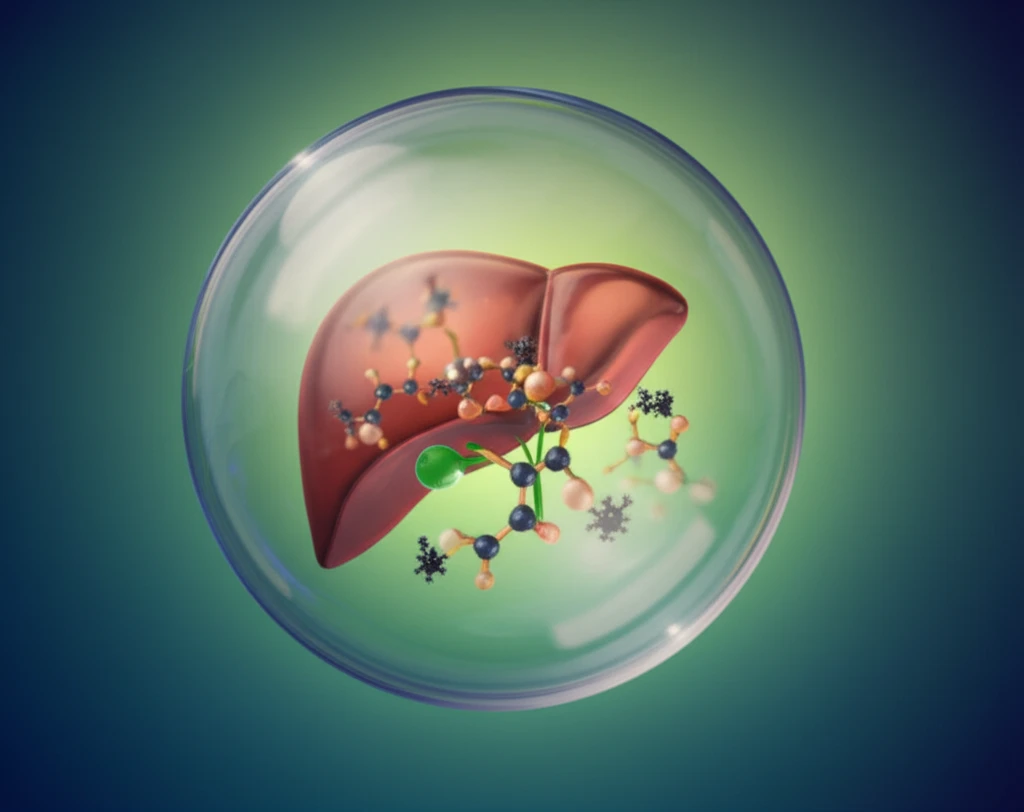
Propofol: Can This Common Anesthetic Protect Your Liver During Sepsis?
"New research explores how propofol, a widely used anesthetic, could help mitigate liver damage caused by sepsis by reducing inflammation and oxidative stress."
Sepsis, a life-threatening condition caused by the body's overwhelming response to an infection, often leads to multiple organ failures, including liver dysfunction. In intensive care units, sepsis is a major concern due to its high morbidity and mortality rates. When sepsis strikes, the liver, a critical organ responsible for filtering toxins and aiding metabolism, can suffer severe damage, impacting its ability to function properly.
Propofol, a commonly used intravenous anesthetic, has been explored for its potential protective effects against sepsis-induced organ damage. Known for its rapid onset and short duration of action, propofol is often used to sedate patients during medical procedures. Recent studies suggest that propofol might do more than just induce sleep; it could actively combat the harmful processes that occur during sepsis.
Researchers have been investigating whether propofol can mitigate liver damage by suppressing hepatic lipid peroxidation, reducing inflammation, and modulating drug interactions. This article dives into the latest research exploring propofol's potential benefits in protecting the liver during sepsis, providing insights into its mechanisms and clinical implications.
How Can Propofol Protect the Liver During Sepsis?

A recent study published in Life Sciences investigated the protective mechanisms of propofol against sepsis-induced liver dysfunction in male Wistar rats. The researchers induced sepsis using a cecal ligation and puncture (CLP) model and then exposed the rats to propofol. They measured several key indicators, including hepatic oxidative stress, lipid peroxidation levels, and the expression of inflammatory markers such as tumor necrosis factor (TNF)-α, interleukin (IL)-1β, and IL-4.
- Reduced Liver Damage: Propofol administration significantly attenuated sepsis-induced insults, protecting against liver damage typically seen in CLP-induced sepsis.
- Decreased Oxidative Stress and Lipid Peroxidation: Propofol reduced oxidative stress and lipid peroxidation levels in the liver, key factors in sepsis-related liver injury.
- Modulated Inflammatory Response: Propofol suppressed the expression of pro-inflammatory cytokines TNF-α and IL-1β while increasing the levels of the anti-inflammatory cytokine IL-4.
- Altered Drug Metabolism: Propofol influenced the activity of liver enzymes involved in drug metabolism, suggesting a complex interaction that could reduce liver stress.
The Future of Propofol in Sepsis Treatment
While these findings are promising, it's important to note that this research was conducted on rats. Further studies are needed to confirm these protective effects in humans. Continuous propofol infusion can lead to metabolic acidosis, which is a significant limitation that must be carefully managed. Nonetheless, this study provides a foundation for future clinical trials to explore how propofol can be used as a therapeutic agent to protect the liver during sepsis. The potential to mitigate liver damage, reduce inflammation, and improve patient outcomes makes propofol a compelling area of research in the fight against sepsis.
